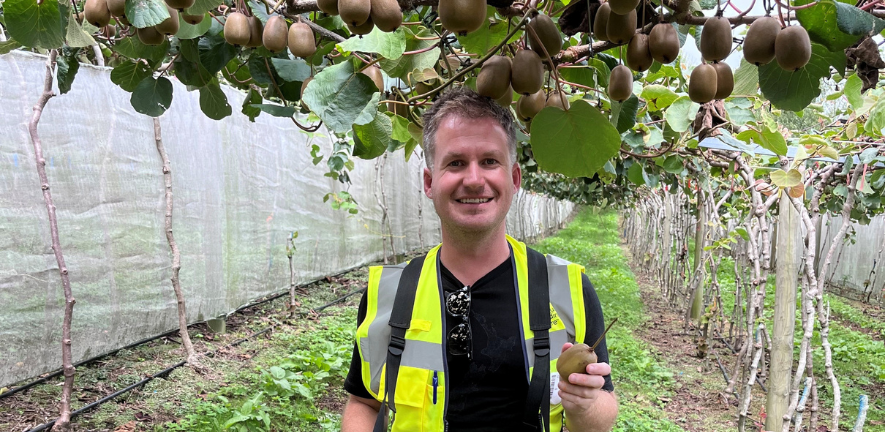
Submitted by Jane Durkin on Tue, 10/06/2025 - 12:51
Studying Plant Sciences at Cambridge can open up a wealth of career opportunities. In this series, we hear from Plant Sciences alumni about their experiences of studying here, how it shaped their careers and what they are doing now.
If you would like your alumni story featured, please email us at alumni@plantsci.cam.ac.uk.
Dr Greg Reeves may now be based on the other side of the world, but the roots of his groundbreaking plant science career stretch deep into the glasshouses and labs of Cambridge.
A PhD student at the Department of Plant Sciences from 2014 to 2018, his research challenged – and ultimately rewrote – a long-held botanical dogma: that monocots cannot graft.
During his PhD, Greg developed the first broadly successful method for grafting monocotyledonous plants across diverse taxa, demonstrating graft compatibility even among grass species with differing photosynthetic pathways (C3 and C4).
The work was pioneering, overturning decades of botanical assumption and opening the door to new approaches in sustainable agriculture and plant resilience.
Now living in New Zealand, Greg leads the largest kiwifruit breeding programme in the world as the Head of Breeding for all kiwifruit in the country. Kiwifruit is New Zealand’s most valuable horticultural export, and under his leadership, the breeding programme is pushing boundaries – not just in yield and shelf life, but in human nutrition.
“Kiwifruits are nutritional powerhouses,” he says. “They have more vitamin C than any other fruit, and we’re now unlocking the genetic basis of traits like high folate, magnesium, potassium, fibre, and vitamins E and K.”
The breeding efforts also focus on aesthetic and sensory appeal, with vibrant green, yellow, and red-fleshed varieties in development, tailored for global markets.
Greg credits Cambridge as a critical launching pad. “My time in the Department of Plant Sciences was truly transformative,” he reflects. “It wasn’t just the science – it was the people, the intellectual environment, the encouragement to question the status quo. I miss it dearly.”
As plant science continues to respond to global challenges in food security, climate change, and nutrition, alumni like Greg exemplify the vital role Cambridge-trained scientists play – across continents and crops – in shaping a more resilient and healthier world.
Image: Greg Reeves in the kiwifruit orchard at the Kiwifruit Breeding Centre, Te Puke, New Zealand.
